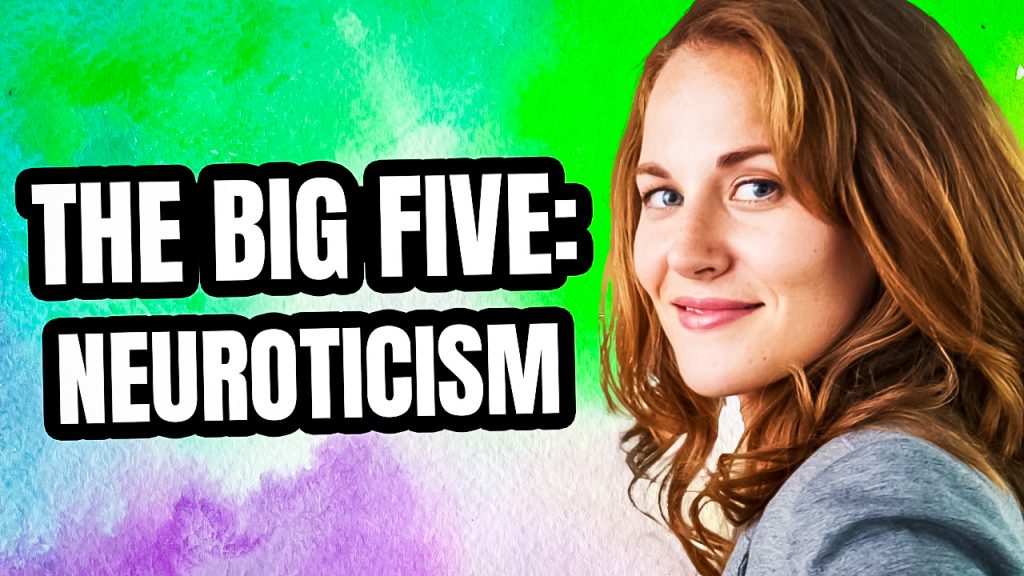The Big 5: Neuroticism

Neuroticism is one of the five major personality traits in the Big Five model of personality. It is a
complex trait that is characterized by a tendency to experience negative emotions such as
anxiety, worry, sadness, and anger. Neurotic individuals tend to be more sensitive to stressors
and have difficulty coping with stressful situations.
Research has shown that neuroticism is a heritable trait, meaning that it has a genetic basis.
Studies on twins have revealed that identical twins, who share 100% of their genes, tend to
have more similar levels of neuroticism than fraternal twins, who share only 50% of their genes.
This suggests that genetic factors play a significant role in the development of neuroticism.
However, environmental factors also play a role in the expression of neuroticism. Early life
experiences, such as childhood trauma or neglect, can increase the likelihood of developing
neuroticism. Studies have also shown that certain parenting styles, such as overprotective or
authoritarian parenting, can contribute to the development of neuroticism in children.
Individuals high in neuroticism tend to experience negative emotions more frequently and
intensely than those low in neuroticism. They may worry excessively about everyday events or
catastrophize minor problems. They are also more likely to experience physical symptoms such
as headaches or stomachaches in response to stress.
Neurotic individuals may also struggle with interpersonal relationships. They may be more likely
to experience conflicts with others and have difficulty maintaining close relationships. They may
also be more prone to jealousy, envy, and other negative emotions in response to social
situations.
Despite these challenges, neuroticism is not always a negative trait. In fact, some research has
suggested that moderate levels of neuroticism may be beneficial in certain contexts. For
example, neurotic individuals may be more conscientious and diligent in their work, as they are
more likely to worry about making mistakes or missing important details.
Moreover, some studies have suggested that neuroticism may be associated with increased
creativity and artistic ability. This may be because neurotic individuals are more likely to
experience intense emotions and may be better able to express these emotions through
creative endeavors.
One of the most significant challenges of neuroticism is that it can be associated with a range of
mental health disorders. Individuals high in neuroticism may be more likely to experience
anxiety disorders, such as generalized anxiety disorder, panic disorder, or
obsessive-compulsive disorder. They may also be more prone to depression or other mood
disorders.
Neuroticism can also contribute to the development of physical health problems. Research has
suggested that individuals high in neuroticism may be more prone to certain health conditions
such as cardiovascular disease or gastrointestinal disorders.
Despite these challenges, there are several strategies that individuals can use to manage their
neurotic tendencies. One approach is cognitive-behavioral therapy (CBT), which is a form of talk
therapy that helps individuals to identify and challenge negative thought patterns that contribute
to their anxiety or other negative emotions. CBT can help individuals to learn new coping
strategies and develop more positive ways of thinking about stressful situations.
Another approach is mindfulness meditation, which involves paying attention to one’s thoughts
and feelings in a non-judgmental way. Mindfulness can help individuals to become more aware
of their emotional responses and develop greater control over their reactions to stressful
situations.
Exercise and other physical activities can also be helpful in managing neuroticism. Regular
exercise has been shown to improve mood and reduce symptoms of anxiety and depression.
Engaging in activities that one enjoys can also be helpful in reducing stress and improving
overall well-being.
In conclusion, neuroticism is a complex trait that is characterized by a tendency to experience
negative emotions such as anxiety, worry, sadness, and anger. While it can be associated with a
range of mental and physical health problems, it is important to remember that neuroticism is
not always a negative trait. Moderate levels of neuroticism can be beneficial in certain contexts
and may even be associated with increased creativity and artistic ability.
This Post is Brought To You By BetterHelp